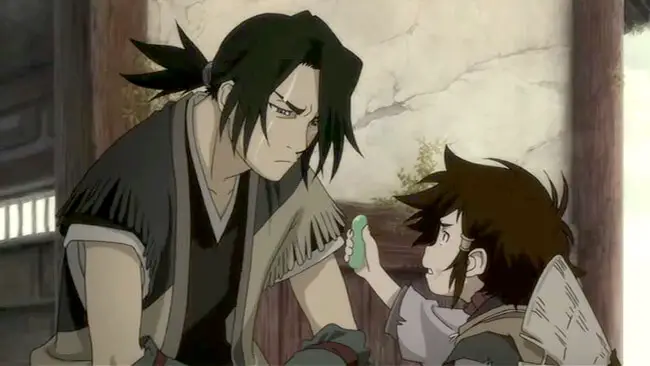Hey everyone, it’s time to dive into another fascinating lesson in otaku culture!

Alright, everyone, please find a place to sit, grab your notebooks, and let’s focus.
Sure,
Let’s talk about mowing the lawn. Lately, I’ve been attempting to address all of your deep inquiries about anime.
At times, you might come across Japanese words that can be difficult to comprehend.
As you continue to hear them, you’ll naturally grasp their meanings.
That “Oniichaaaaan!” is a perfect example. We typically pay attention to the dialogue of female characters.
Let’s start with the most important thing!
Keep in mind that Japanese society operates on a hierarchical structure.Japan, being a popular nation, holds its traditions in high regard.
The sacred space of the family house preserves both tradition and hierarchy.
Having a male successor is seen as crucial in Japanese culture.
He will take charge of fulfilling the family’s objectives, overseeing the household, and looking after his parents once he retires.
It’s crucial to provide care and education for young boys.Even when there are multiple boys in a family, there will always be a hierarchy.
That’s why we often come across the amusing and peculiar names that each sibling receives.
Each family member may have varying expectations regarding their role within the hierarchy.
If you’re curious, there are three terms that brothers use to describe their roles within the family. It’s pretty fascinating stuff!
Alright, let’s begin!
Updated on May 25, 2024, by Govind: You must have heard of Onii Chan, haven’t you? Do you know what it means? And how to use it? Read on for all about Onii ChanThe word onii chan is often brought up due to its widespread popularity among non-Japanese anime and manga enthusiasts. This term is used to describe a male character in the comic who is considered very attractive. It’s similar to how English speakers use the word “daddy” to refer to an attractive male character.
What is Onii-chan Mean?

Oniichan is actually a variant on the word “Oniisan”. In Japanese, [Xiong] the first part is pronounced “O Nii” or “Ani”.
The meaning of the Kanji is “older brother” (or “head of a region “…).
This is a good way of reminding us that the older brother will become the head.
This means that the big brother is expected to be the “face” of the clan. He will need to have many virtues and set an example for his sisters and brothers.
In ideal circumstances, he would also protect the young ones.
However, the kanji could also refer to “young man” and “skilled craftsman”.
These requirements can sometimes be too much for the big bro, so he decides to keep a distance from his smaller siblings.
However, this does not mean he doesn’t care about them. The big brother needs his space.
We are referring to the familiar context so… what happens if we add -san and –chan?
If you know in Japanese, –san can be used in more respectful situations.
However, –chan expresses affection and closeness to a person.
Onii-chan can be used to refer to your older brother if you love him deeply or are simply close to him.
What is Otouto Mean?

We only have one pronunciation of “otouto” in the context of the term, and that is [Di] Its meaning is “younger brother” in the family context. The ideogram may also mean “pupil”, “apprentice” or both.
This is why you’ll also see this kanji when discussing school.
Otouto are often the most adorable characters in anime!
Although the Onii-chan may be a teaser and a bit mean due to his age and size, otouto are usually sweet and innocent.
Let’s not forget about the legendary small brothers Alphonse Elric of Fullmetal Alchemist and Takeru Takaishi, Digimon Adventure.
They are cool, and you know it!
However, there is also the possibility of having a small brother in anime who is too dependent on older people and bratty or insecure. Sometimes, the small brother can become violent.
Guess who is going to have to deal with him the most often?
Poor old sister or brother (je, je), as will be shown in the next example.
What is Kyodai Mean?

This Japanese word is [Xiong Di ]. You can probably guess the meaning.
It is the term for brothers.
Sometimes Kyodai is used with the political family.
Only if you can get along with your sister’s husband.
“Kyodai”, which also means “mate” and “friend”, is another meaning of the word. Japanese use the expression “bro” occasionally, but that’s just how it works.
Remember that Kyodai can only be used for male offspring. Other words are available for girls, but this is another topic.
There you have it!
You now have three more Japanese words to add to your vocabulary.
Keep in mind that this is an ancient language with an ancient writing system, which was inherited from China.
Many Japanese terms have stories. It’s interesting to find a few.
This will help us understand anime better.
It is now time to ask questions.
What other animes are you interested in about brothers?
We are open to your suggestions and comments.
We hope to see you soon!
